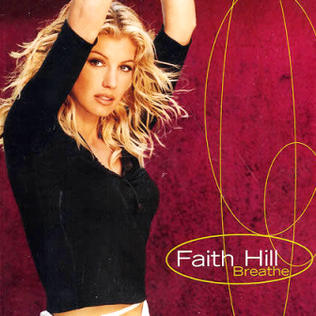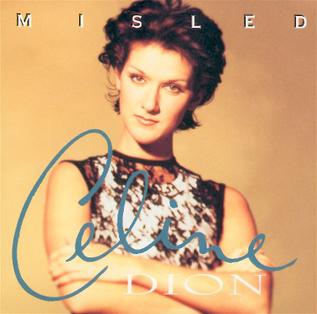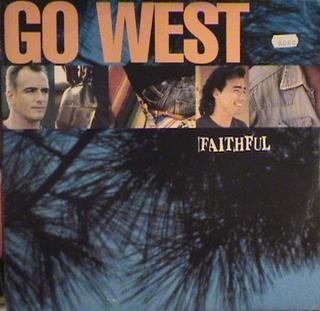
"Hey Jealousy" is a song by American rock band Gin Blossoms. The song was included on the group's debut album, Dusted (1989), and was re-recorded for their 1992 album, New Miserable Experience. It was written by lead guitarist Doug Hopkins, who was fired from the band before New Miserable Experience was released.

"I Feel You" is a song by English electronic music band Depeche Mode, released on 15 February 1993 by Mute as their 27th UK single and the first single from their eighth studio album, Songs of Faith and Devotion (1993). The song peaked at number eight on the UK Singles Chart and also made number one and number three on the US Billboard Modern Rock Tracks chart and the Billboard Hot Dance Club Play chart. It is one of the band's highest-charting singles worldwide. The accompanying music video was directed by Anton Corbijn.

"Walking in My Shoes" is a song by British electronic music band Depeche Mode. It was released on 26 April 1993 by Mute and Sire as the second single from their eighth studio album, Songs of Faith and Devotion (1993). The song reached number 14 on the UK Singles Chart and matched the success of the previous single "I Feel You" on the US Billboard Modern Rock Tracks chart, where it reached one. The B-side is "My Joy", the only exclusive B-side from the Songs of Faith and Devotion album, and is a rock track in the vein of "I Feel You".

"Only When I Lose Myself" is a song by English electronic music band Depeche Mode. It was made exclusively for their 1998 compilation The Singles 86>98 and released as a single on 7 September 1998. It is the first non-album studio single since "It's Called a Heart" in 1985 and is also one of the rare singles to have two limited editions.

"Have You Ever?" is a song by American recording artist Brandy Norwood for her second studio album, Never Say Never (1998). The song was written by Diane Warren, while production was handled by David Foster. It was released as the album's third single by Atlantic Records in October 1998. The song became Norwood's second song to reach the top position on the US Billboard Hot 100, following the worldwide chart-topping of "The Boy Is Mine". The former further reached number one in New Zealand, number two in Iceland, number eight in Australia, and the top 30 in Canada, Ireland, and the United Kingdom.

"Take a Picture" is a song by American rock band Filter, released to radio in September 1999 as the second single from their second studio album, Title of Record (1999). The song became a hit at the start of 2000 following its January 18 retail release, peaking at number 12 on the US Billboard Hot 100 and number three in Canada. It also became a top-10 hit in New Zealand, peaking at number eight on the RIANZ Singles Chart.

"If It Makes You Happy" is a song by American singer-songwriter Sheryl Crow, released as the lead single from her 1996 eponymous album in September 1996. The song peaked at number 10 on the US Billboard Hot 100, becoming Crow's final top-10 solo hit in the United States, and at number nine on the UK Singles Chart. It also reached number one in Canada and won Best Female Rock Vocal Performance at the 1997 Grammy Awards. In 2003, Q Magazine ranked "If It Makes You Happy" at number 663 in their list of the "1001 Best Songs Ever".

"Leaving Las Vegas" is a song co-written by David Baerwald, Bill Bottrell, Sheryl Crow, Kevin Gilbert, Brian MacLeod, and David Ricketts that appears on Crow's debut album, Tuesday Night Music Club (1993). It charted within the top 75 in the United States and the top 30 in Canada. Crow performed the song on her live album Sheryl Crow and Friends: Live from Central Park.

"Breathe" is a song written by Stephanie Bentley and Holly Lamar and recorded by American country music artist Faith Hill. Warner Bros. Records released it on October 4, 1999, as the first single from Hill's fourth album of the same name (1999). The song was produced by Byron Gallimore and Hill. "Breathe" became Hill's seventh number one on the Hot Country Songs chart in the United States, spending six weeks at number one. It also peaked at number two on the Billboard Hot 100 chart in April 2000. Despite not peaking at number one, it was the number-one single of 2000.

"I Want You" is a song by Australian pop duo Savage Garden, originally released in Australia on 27 May 1996 as the lead single from their eponymous debut album, Savage Garden (1997). The single reached number one in Canada and peaked at number four in Australia and on the US Billboard Hot 100. Much of the song's chart success in the US was the result of Rosie O'Donnell playing the song on several episodes of The Rosie O'Donnell Show. In the United Kingdom, the single was issued twice, achieving its highest peak of number 11 during its initial release in 1997.

"I Didn't Want to Need You" is a song by American rock band Heart. It was composed by veteran songwriter Diane Warren and released as the second single from the band's 10th studio album, Brigade (1990). "I Didn't Want to Need You" peaked at number 23 on the US Billboard Hot 100 and number 14 on the Canadian RPM 100 Hit Tracks chart. It also reached the top 40 in Ireland and Sweden and number 47 on the UK Singles Chart.

"Misled" is a song recorded by Canadian singer Celine Dion for her third English-language studio album, The Colour of My Love (1993). It was released as the second single from the album on 11 April 1994 by Columbia Records/Epic Records. The song was written by Peter Zizzo and Jimmy Bralower and produced by Ric Wake. "Misled" topped the US Billboard Dance Club Songs chart and reached number four in Canada. It also peaked at number 15 on the UK Singles Chart and number 23 on the Billboard Hot 100. Its music video was directed by Randee St. Nicholas.

"Strong Enough" is a song by American singer-songwriter Sheryl Crow from her debut album, Tuesday Night Music Club (1993). The song reached number five on the US Billboard Hot 100 for three consecutive weeks, number three in Australia, and number one in Canada, becoming her second chart-topper there following "All I Wanna Do". In Australia, the song received a double-platinum certification for sales and streams exceeding 140,000 units.

"Dreams" is the debut single of Irish rock band the Cranberries. It was originally released in September 1992 by Island Records and later appeared on the band's debut album, Everybody Else Is Doing It, So Why Can't We? (1993). The song reached the top 50 of the US Hot 100 and the top 30 of the UK Singles Chart in early 1994. A 1990 demo version was released in Ireland only in the summer of that year under their initial band name, the Cranberry Saw Us. At the end of the song, the backing vocals are sung by Mike Mahoney, ex-boyfriend of Cranberries lead singer Dolores O'Riordan.

"Run Baby Run" is a song by American singer-songwriter Sheryl Crow from her first album, Tuesday Night Music Club (1993), released by A&M Records in September 1993 as her debut single. It failed to chart in the United States but peaked at No. 86 in Canada, No. 83 in the United Kingdom, and No. 45 in the Netherlands. "Run Baby Run" was released for a third time in the UK after the success of "All I Wanna Do" and "Strong Enough", reaching a new peak of No. 24 on the UK Singles Chart in July 1995.

"Follow You Down" is a song by American rock band Gin Blossoms, and the first single released from their album Congratulations I'm Sorry. It was released as a double A-side single with "Til I Hear It from You" in the United States. The song received a fair amount of radio play and has been featured in several films, including How to Lose a Guy in 10 Days. It reached number nine on the US Billboard Hot 100 in a 46-week stay on the chart. It also became the band's second number-one single in Canada, after "Til I Hear It from You", and reached number 30 in the United Kingdom.

"All This Time" is a song by English musician Sting. It was released as the first single from his third studio album, The Soul Cages (1991), on 31 December 1990 by A&M Records. The song was a chart success, especially in North America, reaching No. 5 on the US Billboard Hot 100, topping the Billboard Album Rock Tracks and Modern Rock Tracks charts, and peaking at number one on Canada's RPM 100 Hit Tracks chart.

"The Hardest Thing" is the third single released from American boy band 98 Degrees's second studio album, 98 Degrees and Rising (1998). "The Hardest Thing" peaked at number five in the United States, number 10 in Canada, number 29 in the United Kingdom, and number 31 in Ireland. It also experienced moderate success in Oceania, peaking at number 24 in Australia and number five in New Zealand. The single was certified gold by the Recording Industry Association of America (RIAA) for sales of 500,000 units.

"This Cowboy Song" is a song by English musician Sting. It is one of two new tracks included on his compilation album Fields of Gold: The Best of Sting 1984–1994, alongside "When We Dance". Recorded at Lake House in Wiltshire throughout August and September 1994, the song centers around the concept of one's own mortality from the point of view of a cowboy pondering his current life. "This Cowboy Song" was released as the album's second single on 30 January 1995, becoming a top-40 hit in the United Kingdom, Canada, Iceland, and Ireland.

"Faithful" is a song by English pop duo Go West. The song is the opening track on the band's fourth album, Indian Summer (1992), and served as the album's lead single. Written by the band and Martin Page and produced by Peter Wolf, the song reached the top 20 in New Zealand, the United Kingdom, and the United States. Its highest chart position was in Canada, where it peaked at number two in February 1993. It also reached number three on the adult contemporary charts of both Canada and the United States.




















